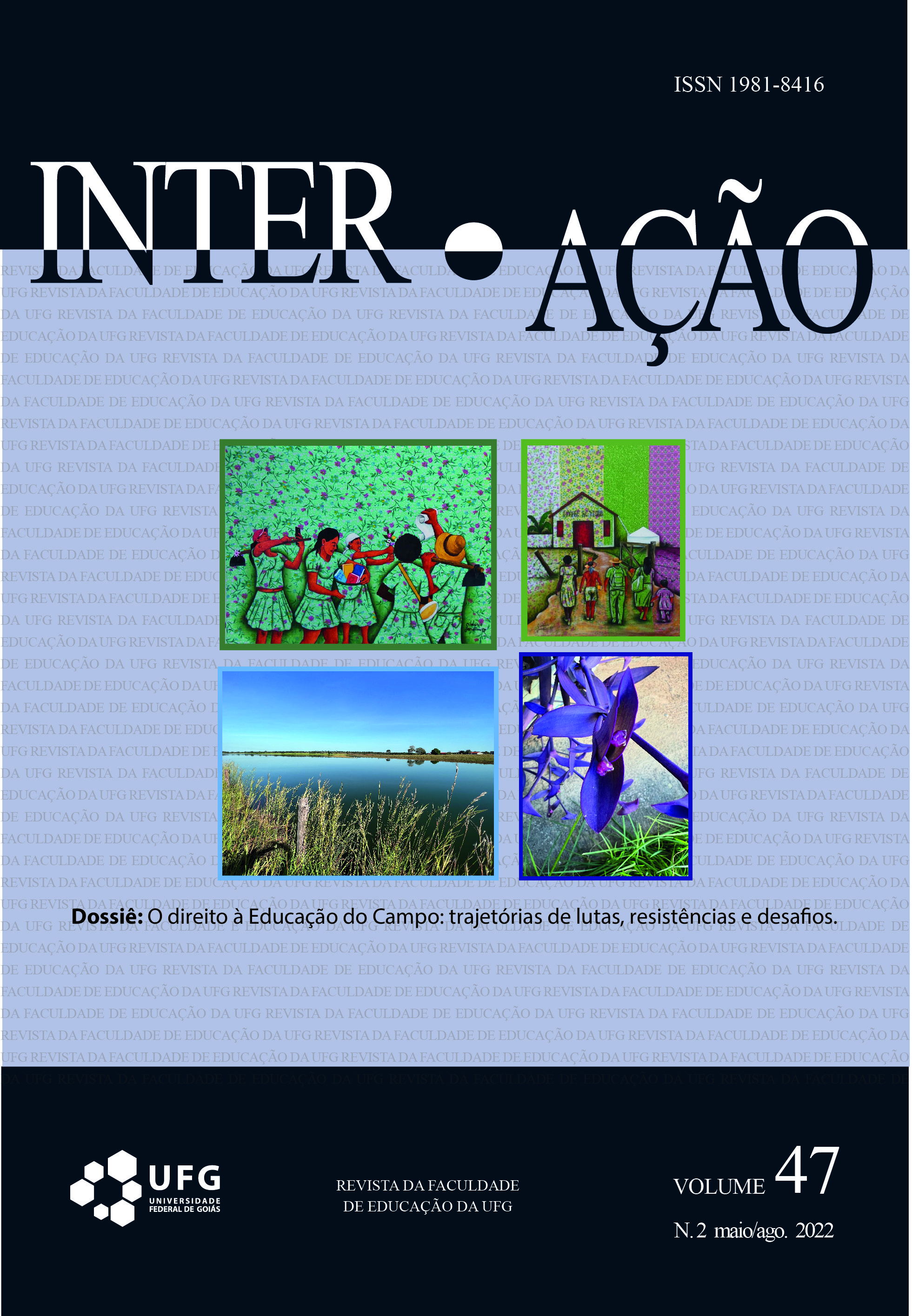LA ALTERNANCIA EN LA FORMACIÓN INICIAL DE DOCENTES DE LA LICENCIATURA EN EDUCACIÓN DEL CAMPO EN LA REGIÓN SUDESTE
DOI:
https://doi.org/10.5216/ia.v47i2.72112Resumen
Este trabajo tuvo como objetivo discutir la alternancia en la formación docente en la región Sudeste, más específicamente en la Universidad Federal de Minas Gerais (UFMG), la Universidad Federal Rural de Rio de Janeiro (UFRRJ) y la Universidad Federal de Espírito Santo (UFES). Se utilizó la metodología de investigación bibliográfica con enfoque cualitativo. Entre las principales discusiones realizadas, destacamos el uso de la formación en alternancia organizada en tiempo escuela/universidad y tiempo comunidad como propuesta pedagógica para la organización del currículo en las referidas licenciaturas. Como opción pedagógica se destaca la aplicación de la alternancia integradora, o sea, la intercomunicación entre los diferentes tiempos y espacios formativos, así como los referenciales del movimiento de educación de el campo en Brasil. Entre las mediaciones pedagógicas utilizadas para la articulación del tiempo escuela/universidad, el plan de estudios, el cuaderno de realidad, el lugar común desarrollado en las UFES, la guía del tiempo comunidad y la Jornada Socioterritorial en la licenciatura en educación en el ámbito de la UFMG y la UFRRJ se utilizan los Grupos de Trabajo (GT) y el trabajo integrado como mediaciones que articulan los diferentes tiempos formativos en la formación de profesores de las mencionadas universidades.
PALABRAS-CLAVE: Educación de el Campo. Alternancia. Grados en Educación de el Campo. Formación de Profesores.
Descargas
Publicado
Cómo citar
Número
Sección
Licencia
Derechos de autor 2022 Maria Isabel Antunes Rocha, Silvanete Pereira dos Santos, Ramofly Bicalho

Esta obra está bajo una licencia internacional Creative Commons Atribución-NoComercial 4.0.
A Inter-Ação utiliza como base para transferência de direitos a licença Creative Commons Attribution 4.0 para periódicos de acesso aberto (Open Archives Iniciative - OAI). Por acesso aberto entende-se a disponibilização gratuita na Internet, para que os usuários possam ler, baixar, copiar, distribuir, imprimir, pesquisar ou referenciar o texto integral dos documentos, processá-los para indexação, utilizá-los como dados de entrada de programas para softwares, ou usá-los para qualquer outro propósito legal, sem barreira financeira, legal ou técnica.
Autores que publicam neste periódico concordam com os seguintes termos:
1) Autores mantém os direitos autorais e concedem à revista o direito de primeira publicação, com o trabalho simultaneamente licenciado sob a Licença Creative Commons Attribution que permite o compartilhamento do trabalho com reconhecimento da autoria e publicação inicial nesta revista.
2) Autores têm autorização para assumir contratos adicionais separadamente, para distribuição não-exclusiva da versão do trabalho publicada nesta revista (ex.: publicar em repositório institucional ou como capítulo de livro), com reconhecimento de autoria e publicação inicial nesta revista.
3) Autores têm permissão e são estimulados a publicar e distribuir seu trabalho online (ex.: em repositórios institucionais ou na sua página pessoal) a qualquer ponto antes ou durante o processo editorial, já que isso pode gerar alterações produtivas, bem como aumentar o impacto e a citação do trabalho publicado.















